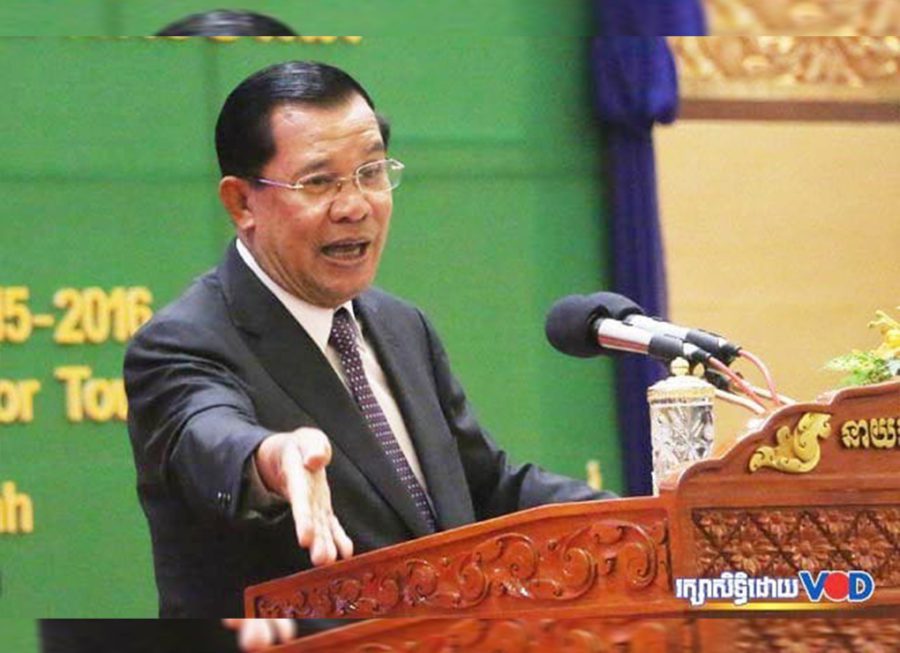For Prime Minister Hun Sen, the Khmer Rouge genocide is evidence of progress and security under his rule — a doctrine he repeated again on Monday, the National Day of Remembrance. For some political observers, however, the lesson lies less in the virtues of his firm grip over the country’s politics, and instead in the dangers of unrivaled power.
Hun Sen wrote on his Facebook page on Monday that the May 20 National Day of Remembrance was created to honor the millions who died under the Khmer Rouge regime. (Estimates of the death toll between 1975 and 1979 due to killings and mass starvation typically range from 1 million to almost 3 million.)
The Pol Pot regime “forced people to work like animals, with no time for a break, no medicine for treatment when ill, not enough food to eat, no freedom, no democracy,” he wrote.
Echoing a winning political platform, Hun Sen said he had brought peace to the country, and called on people to prevent the return of war.
Hun Sen and the ruling Cambodian People’s Party (CPP) have repeatedly painted the political opposition — as well as civil society groups — as agents of disorder and insecurity, justifying the dismantling of the Cambodia National Rescue Party (CNRP) in 2017 and ongoing harassment of its former members.
Political analyst Em Sovannara, however, said war had broken out in Cambodia because those in power had not respected the will of the people.
“With the Paris Peace Agreements, we chose a way — multiparty democracy,” Sovannara said. “If we depart from this principle, civil war could return.”
The country’s leaders clearly understood this in agreeing to pursue a democracy in 1991 to end years of civil war, he said.
“If we once understood but now pretend not to understand, the issue of war and color revolution — which is the accusation — it could return, because it does not heed the wishes of the people,” Sovannara said.
Am Sam Ath, monitoring manager for rights group Licadho, said it was unlikely that the country would return to civil war and genocide. But he called on the government to follow the Constitutional principles of human rights and democracy — and allow political competition on an even playing field — to mitigate the risk.
“A return to a regime of the past like Pol Pot’s won’t be possible, but Cambodia could face sanctions over human rights,” Sam Ath said.
The United States and European Union have demanded that the government restore human rights and democracy in Cambodia after the CNRP was dissolved in 2017, nine months ahead of a national election. Former opposition leader Kem Sokha was arrested at the time and remains under house arrest.
The U.S. and E.U. are reviewing Cambodia’s access to tariff-tree trade over the concerns. The Garment Manufacturers Association in Cambodia has estimated that the E.U. suspending its Everything But Arms (EBA) trade deal could impact the livelihoods of 700,000 factory workers.
(Translated and edited from the original article on VOD Khmer)












